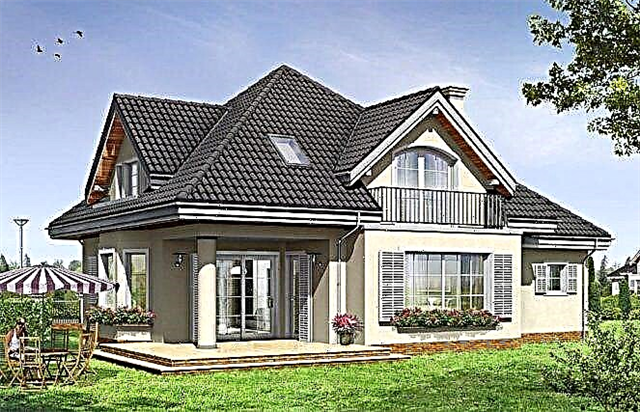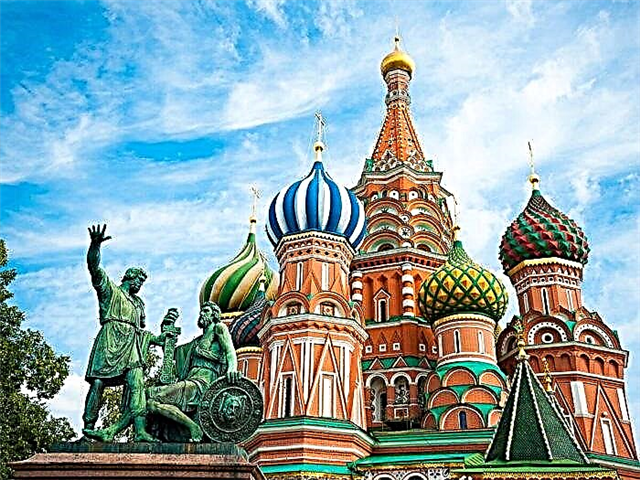Mobile phones and various gadgets have entered our lives so tightly that many people are not ready to part with these achievements of civilization, even for a very short time. Therefore, when going abroad, most travelers want to be sure that they can always stay in touch with business partners, relatives and friends. In Germany, a country that is one of the leaders of the EU, mobile communications and the Internet in 2021 are well developed and function smoothly.

Mobile market in Germany
The German mobile market is unusually expensive for CIS residents: a decent starter package will cost about 10 euros. As for the rest, the connection is excellent, and making a call from your cell phone to the number you need will not be a problem.
Relatively recently, four main mobile operators operated in Germany: Deutsche telekom, Vodafone, O2 and E-plus, but in 2021 Telefonica acquired the E-plus company and merged with the previously owned O2 operator. Thus, there are three main mobile operators on the market.
Coverage and tariffs are different for all operators. The worst reviews were for the services of the vanished E-plus, while the surviving companies have good coverage. In addition to the main operators with their own infrastructure, traffic can also be provided by several virtual operators.
In Germany, a system of prepaid mobile services is widespread. This system assumes daily debiting of a certain amount from the account for access to the full list of services.
Actually, the system works like this: there is money in the account - all services are available, if there is no money - services are not available. SIM cards from German operators are sold everywhere in shops and kiosks, so there shouldn't be any difficulties with purchasing a package.
Communication standards 2G and 3G, as elsewhere in Europe, correspond to frequencies of 900 and 1800 MHz. The 3G standard at high speeds is available practically throughout the country. Minor problems may arise in rural areas, but only at selected points.

The 4G standard, which is of great importance for access to high-speed Internet, uses the frequencies 800, 1800 and 2600 MHz. At the same time, companies distribute frequencies in different ways and thus decide on the availability of such an Internet in a specific package.
It should be noted that in different regions of Germany, the quality of communication provided by mobile operators is different. If you plan to access the Internet in a certain area, then before choosing an operator, it makes sense to scan the network.
Talking about telephone communication in Germany, one cannot fail to mention landline telephones. Phones in Germany start with +49, which is the international dialing code for Germany, called a prefix. You need to dial it before the main phone number if you call Germany. If you are calling from a country abroad, the prefix is 00, for calls within the country, the prefix 0 is used.
There is no fixed length for telephone numbers in the country. Currently, phone numbers in Germany can be anywhere from two to eight digits, not counting the 0 prefix.
There are also special service numbers starting with 11. There is no need to dial prefix 0 before these phone numbers.
Major mobile operators in Germany
Mobile services in Germany are provided by three main operators:
- Deutsche telekom (formerly known as T-mobile);
- Vodafone;
- O2.
It is in this sequence that they ranked in the popularity rating among subscribers in terms of coverage quality.
Such information is often used for advertising purposes, but the results of studies carried out in the country showed that about a quarter of Germans at the time of the survey could not even remember which operator they were using.
If you do not set yourself the goal of purchasing a package with the most attractive conditions, you can choose any of the existing mobile operators.
If such a task is still worth it, then it makes sense to study the offers of virtual operators - sometimes they offer tariffs for a specific service lower than those of the main companies. If you need this particular service, then why not take advantage of the economy offer.
Roaming of Russian operators in Germany
A call to a mobile from Germany to Russia or an incoming call from the Russian Federation will be quite expensive. The reason for this is roaming and the corresponding surcharge for the ability to use the infrastructure of another operator. The main Russian operators offer roaming services abroad, and even several types of it, from which you have to choose the most suitable one.
Beeline roaming offers the "Most Profitable Roaming" service. By connecting it, you will receive 20 minutes of telephone communication per day for 200 rubles. 40 MB of Internet per day will cost another 200 rubles. You will have to pay 20 rubles for outgoing SMS.
Roaming from MegaFon in Germany will cost from 89 rubles per day for calls within Germany and to Russia and up to 129 rubles for calls to third countries. Incoming SMS are free, outgoing - 25 rubles. The use of instant messengers and 10 MB of the Internet - 99 rubles for each of the services. There are additional options to keep costs down.

MTS offers the following roaming conditions: per minute of conversation with an incoming call - 85 rubles; a minute of outgoing calls to Russia and within Germany will cost the same. A minute of conversation with other countries will cost 135 rubles.
Mobile Internet for tourists in Germany from MTS will cost 30 rubles for 40 KB of traffic; if you have the "Bit Abroad" option enabled, the traffic is not limited, the cost of the service is 450 rubles.
If you have the "Zabugorische" option activated, then calls to Russia and incoming calls within the limit of 350 minutes per week are free. Internet within the home package is unlimited, while 7 GB per week is provided free of charge. For using the package in Germany, a fee is charged: 290 rubles per day.
Tele2 offers roaming all over Europe at a uniform rate - 15 rubles per minute of conversation. The cost of the Internet is 25 rubles per MB. Outgoing SMS - 6 rubles, incoming - free.
Purchase a SIM card from a local operator
Despite the fact that the proposals of Russian mobile operators allow you to somewhat reduce the financial burden during your stay in Germany, if you have to communicate a lot on the phone or you constantly surf the Internet, it is cheaper to purchase a card from one of the local operators.
The ideal option in such a situation would be a phone that allows the installation of two SIM-cards. This way you can be connected to the main number in case of emergency calls and use local calls and the Internet without additional roaming charges. By the way, roaming within the EU has been canceled, so calling from Berlin to Paris using a local SIM card will cost you the same money as within Germany.
The main savings as a result of activating a local SIM card occur precisely when using the Internet. By themselves, phone calls in Europe are quite expensive, for this reason, experienced users advise not to make calls, but to communicate using various instant messengers. In this case, the problem of rational spending of funds will be solved as efficiently as possible.
Most tourists complain that they do not have enough Internet access to plan a route and chat with friends, or their operator's roaming charges are very expensive. Therefore, we recommend buying a universal SIM card that is not tied to a specific mobile operator and is ready to work immediately upon entering another country.
Mobile top-up in Germany
The easiest way to top up German mobile phone numbers is to purchase a top up card.The system is simple and familiar to us. Together with the card, you will receive a combination of numbers that you need to send to the specified short number. After a while, you will receive an SMS confirmation of the funds transfer. Cards are sold at the box office of all stores and at gas stations.

You can also top up your account using Internet banking. This method allows you to top up your account with a Russian operator. But there are no top-up machines in Germany.
Use of mobile internet in Germany
German operators provide their subscribers with high-quality mobile Internet coverage practically throughout the country. Almost the entire territory of Germany is covered with 2G technology, and only a few remote areas are left without coverage at all.
3G / UMTS up to DC-HSDPA + is available in most localities with the exception of a few in rural areas. Well, 4G / LTE technology can still be used by about 80-90% of the population.
The average speed of 3G Internet, for example, in Frankfurt and Dresden, reaches 1.9 Mbps (download) and 0.5 Mbps (upload), while 4G works much faster: an average speed of 20.5 Mbps ( download) and 5 Mbps (upload).
It should be borne in mind that it is impossible to use LTE without a 2-year contract. Only 3G is available without a contract. Thus, operators are holding back the load on 4G networks.
You can use the German mobile internet on an unlimited basis. The tariff parameters are very similar to the Russian ones: there is a fixed block of traffic with no speed limit, and then the speed is “cut” to 64 or 56 Kbps.
However, if necessary, the subscriber has the opportunity to buy an additional traffic package without speed limits.
Depending on the specific operator, the use of mobile Internet has a number of nuances:
- Deutsche Telekom provides high-speed Internet only in cities - in rural areas, the speed of the network is lower. You can access the Internet regardless of whether you have a contract or a prepaid package, but only directly on behalf of Deutsche Telekom. Virtual operators using its networks do not provide Internet access.
- Vodafone operates on the same terms as Deutsche Telekom, virtual operators do not provide Internet access.
- O2 previously did not provide the opportunity to use the Internet for owners of prepaid packages, however, with the acquisition of E-Plus, this opportunity should appear, as well as the ability to work through virtual operators.
It should be noted that the German Internet in its mobile version allows you to get speeds from 1 to 7.2 MB / s. At the same time, an unlimited package costs from 15 to 20 euros per month.
Take a sociological survey!
[yop_poll id = ”11 ″]
Possibility to use internet cafes and Wi-Fi in Germany
More recently, Wi-Fi access was virtually non-existent in Germany. The reason for this was that, according to German law, the owner of the establishment who provided customers with Internet access was responsible for their online activities. Naturally, there were few people willing to answer to the authorities, so it was difficult to even get paid access to the Internet.

However, in 2021, amendments were made to the legislation that removed responsibility for other people's actions from the owners. After that, Wi-Fi and Internet cafes, or, as they are called here, cyber cafes began to spread quickly enough. Big cities have it all. But in general, Russians living in large cities of the Russian Federation will find the level of distribution of such options for accessing the network unexpectedly low.
When using Wi-Fi in Germany, be sure to check if it is free. Moreover, even in expensive hotels, you can get an additional bill for using the Internet.
In cafes, the use of Wi-Fi is often limited to 30-60 minutes, and if you want to use the Internet further, you need to order something. Public Wi-Fi access points are gradually emerging - they are called Hot Spot. The Internet speed is low there, but when you connect, you no longer need to enter personal data.
Home Internet
The Internet in Germany in its stationary version is very widespread. The main operators in the market are the same as in the mobile market, but you can also add companies 1 & 1 and Cable Deutschland. The leading positions are held by Deutsche Telekom.
Previously, it was the state-owned communications company Deutsche Bundespost, but after privatization in 1996 it was renamed. Despite the fact that new operators appeared on the market, many Germans turned out to be very conservative and did not change their telecommunications service provider, which had been proven for years.
For a long time, the company practically did not change the equipment, since it was not profitable for it, and nevertheless, the consumers were satisfied with everything. And only the stringent requirements of the country's government eventually led to the emergence of fiber-optic communication lines in Germany and the spread of high-speed Internet technologies such as DSL and VDSL.
Deutsche Telekom currently holds 50% of the fixed network market.
So if you have come to Germany for a long time and decided to acquire a landline Internet, you will not have any problems. At your request, it will be possible to purchase a package that includes not only Internet services, but also television and telephone communications. In the first three months after connecting the fixed Internet in Germany costs 15 euros, and starting from the fourth - 25 euros per month. By the way, when renting an apartment in Germany, some landlords include the cost of the Internet in their utilities.
What tariffs for communal services in Germany can be found in the article: "Utilities in Germany."
Conclusion
Mobile communications and the Internet are very well developed in Germany. Despite this, access to Wi-Fi is limited, but it is still available in all the most visited places. During the trip, you can use the services of mobile communications and mobile Internet using SIM-cards of Russian operators, however, if you are used to surfing the net for a long time, it is better to purchase a starter package from a local operator for the duration of the trip - it’s cheaper. The ideal option is a phone with the ability to install two SIM-cards.











